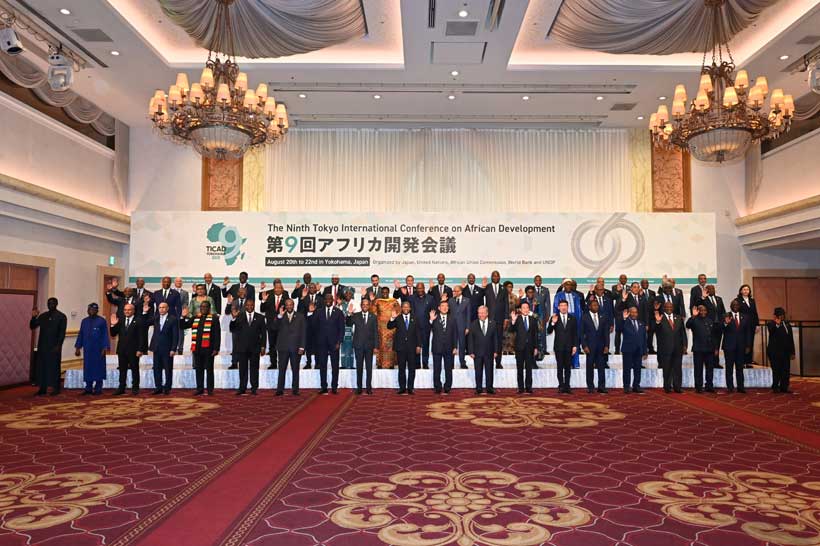In a Rare Nod to Tradition, Jerry Brown Ties the Knot
OAKLAND — Mayor Jerry Brown, who has projected an unconventional, even enigmatic, persona during 3 1/2 decades of public life, took a traditional step in his private life Saturday, marrying his longtime companion and manager of his upcoming campaign for state attorney general.
In a formal and quasireligious civil ceremony orchestrated by Brown himself and attended by almost 600 guests, the 67-year-old former governor exchanged rings with former Gap Inc. executive Anne Gust. It was the first marriage for each, and came after 15 years together.
Elements of Brown’s past, present and future converged in the half-hour ceremony packed with much of the Bay Area’s Democratic political establishment. It was held in the rotunda of a renovated, historic Civic Center office building, the sort of project Brown has promoted as a pro-development mayor. The wedding was laced with biblical readings and Gregorian chants in Latin that Brown knew all too well as a former Roman Catholic seminarian.
“I wanted the sound to be traditional,” Brown said afterward. “Most [of it] is 800 years old and nothing is less than 500.”
It was not exactly the sort of wedding people had come to expect from a man who many years ago was dubbed Gov. Moonbeam for living in Spartan fashion, driving a state-issued Plymouth and dating singer Linda Ronstadt. Nor was it the wedding of a man who studied yoga, volunteered for Mother Teresa’s home for the poor people in Calcutta, or more recently lived in lofts in gritty parts of this city.
“This is more than traditional,” former San Francisco mayor and onetime Assembly Speaker Willie Brown said after the wedding. “It would have satisfied anything the Kennedy clan would have put together. It’s California [political] history for 40 years.”
The attendees were like signposts on the political road traveled by the son and namesake of the late Gov. Edmund G. “Pat” Brown.
Jerry Brown, who grew up in San Francisco and graduated from UC Berkeley and Yale Law School, served as secretary of state from 1970 to 1974 and governor from 1975 to 1983. He also ran for president and headed the state Democratic Party. He was elected mayor of Oakland in 1999, and is seeking the Democratic nomination for state attorney general in 2006.
Sen. Dianne Feinstein (D-Calif.), a former San Francisco mayor, presided over the wedding in a pink dress. The 47-year-old bride, in an ivory Diane von Furstenberg dress, was presented by her father, Rockwell T. Gust Jr., who once ran for lieutenant governor of Michigan.
Gust, who is a lawyer, and Brown, in a black suit with white shirt and tie, exchanged rings and vows. Then Feinstein declared them husband and wife, and they embraced and kissed to applause as singers performed the final chant.
Brown’s sister, Kathleen, a former state treasurer and candidate for governor, was present. So were many other Democratic politicians, including Oakland’s top city officials, San Francisco Mayor Gavin Newsom and former Gov. Gray Davis.
Oakland City Council President Ignacio De La Fuente, Brown’s designated successor as mayor, was there along with people from the early years of Brown’s career, such as Orville Schelle, dean of the journalism school at UC Berkeley, and PG&E; executive Dan Richard, who served on then Gov. Brown’s staff from 1979 to 1982.
“One person just said we should have buttons saying ‘I’m from the ‘70s,’ … ‘I’m from the ‘80s’ … ‘the ‘90s,’ ” Richard said.
After the civil ceremony in Oakland, another set of nuptials was to be held at the San Francisco church where Brown’s parents were married and he was baptized.
Then Brown said the newlyweds plan to spend a couple of days on the Russian River — then take a belated honeymoon in Italy in August — after the June primary.
“We have a little campaign in the meantime,” he said.

